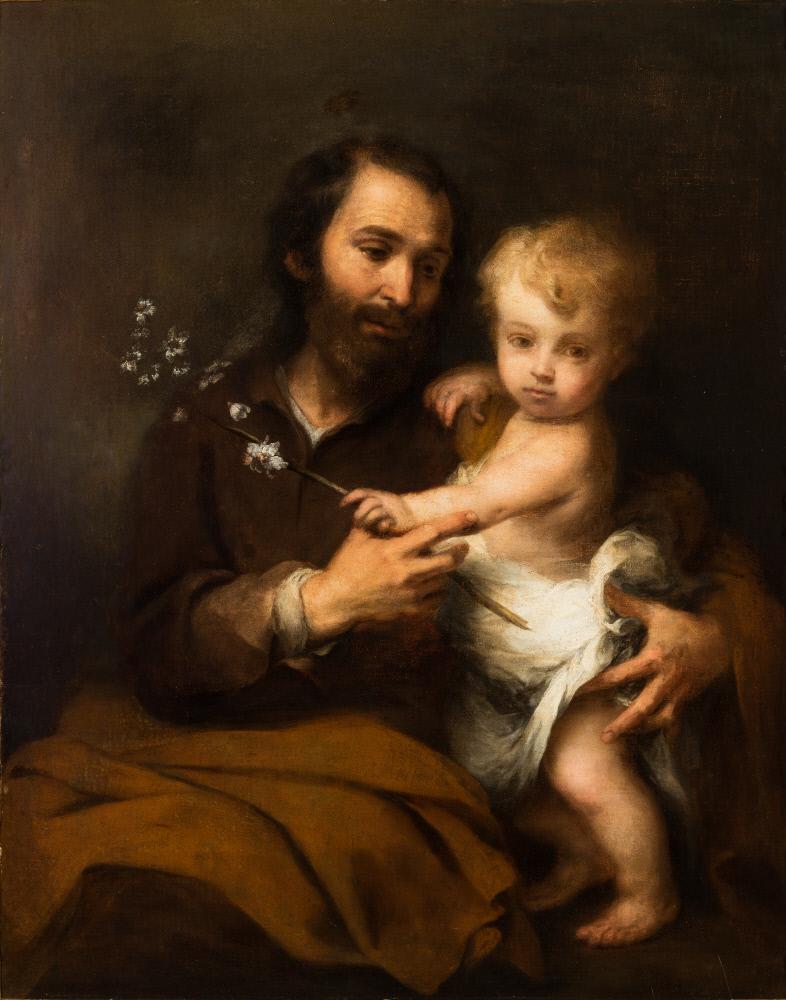“With a Father’s Heart: that is how Joseph loved Jesus, whom all four Gospels refer to as ‘the son of Joseph’” (Apostolic Letter Patris Corde).
For our reflection this Father’s Day, we turn to the holiest of earthly fathers, Saint Joseph. The house at Nazareth, headed by Saint Joseph, was imbued with love – sunrise to sunset, day after day – because of the holiness of its occupants: Jesus, the Son of God; Mary, His Mother; and Joseph, His foster father.
In his book Joseph: The Man Who Raised Jesus, Father Gary Caster writes: “For some thirty years Jesus lived, prayed, celebrated, studied, and shared in the home Joseph established. The years in Nazareth were a real foundation upon which Jesus would build his saving ministry. St. Joseph is best known through Jesus’s words and deeds” (xiii).
We find numerous accounts of these in Sacred Scripture, of course. We turn there now for just a few of many examples of Saint Joseph’s influence on Jesus. We examine these in light of Saint Joseph’s holiness as exemplified in their family life through his manual labor, his humility, and his respect for women.
~ The holiness of manual labor ~
The teachings of Jesus are filled with images familiar to His listeners, as in the following: “Come to me, all you who labor and are burdened, and I will give you rest. Take my yoke upon you and learn from me, for I am meek and humble of heart; and you will find rest for yourselves. For my yoke is easy, and my burden light” (Mt 11:28 – 30).
Joseph, a craftsman by trade, passed on his knowledge, skill, and expertise to Jesus, his son. Given their location, fashioning yokes was very likely an important aspect of their carpentry trade. An “easy” yoke would fit properly, so that there would be no abrasion to the necks of the animals wearing it. Two could walk along together without discomfort. As apprentice to his holy earthly father, Jesus learned the desirability of an “easy” yoke. Coupled with Him today, we can walk in comfort and security, finding rest for ourselves.
~ The holiness of humility ~
“When you are invited, go and take the lowest place so that when the host comes to you he may say, ‘My friend, move up to a higher position’ … For everyone who exalts himself will be humbled, but the one who humbles himself will be exalted” (Lk 14:10 – 11).
The Holy Family did not function as a self-contained unit. They lived in a village. They had family members, friends, and neighbors – even customers – fairly close by. And while most of their everyday life was spent in Nazareth, they also traveled together; to Jerusalem, for example, for the Jewish holy days (Lk 2:41 – 51). Within their interactions with others, there would have been many opportunities for Jesus to observe Joseph behaving deferentially, taking “the lowest place.” How powerful is the example of humility, father to child! Clearly, it was not lost on Jesus, nor should it be lost on us.
~ The holiness of respect for women ~
The compassion and love which Jesus displayed toward women, as attested to in numerous passages of Scripture, were born of the unfailing love and respect of Joseph toward Mary which He witnessed first-hand every day. The Gospel of Luke in particular features many instances of Jesus’ loving interactions with women, an unusual circumstance for His time when women often were demeaned or ignored. For example, we find the accounts of the grieving widow of Nain (7:11 – 15); the sinful woman who anointed Jesus’ feet (7:36 – 50); and Jesus’ beloved friends Martha and Mary (38 – 42).
As Father Caster states: “The way in which Jesus interacted with women is a profound testimony to the love of the Father and the example of his earthly Father. St. Joseph was a model of masculinity, and his strength was rooted in thoughtful care and genuine respect” (18).
Men and women alike can find no better example of holiness in daily living and in living out the duties of our vocations. With the help of Saint Joseph, we can aspire to holiness through the work of our hands, our humility, and our respect for each other.
Patris Corde ends with a prayer to Saint Joseph which is highly appropriate to our purposes as we honor this holy man on Father’s Day. It is a fitting conclusion to our reflection.
Hail, Guardian of the Redeemer,
Spouse of the Blessed Virgin Mary.
To you God entrusted his only Son;
in you Mary placed her trust;
with you Christ became man.
Blessed Joseph, to us too,
show yourself a father
and guide us in the path of life.
Obtain for us grace, mercy and courage,
and defend us from every evil. Amen.
© All Rights Reserved, Living His Life Abundantly®/Women of Grace® http://www.womenofgrace.com










